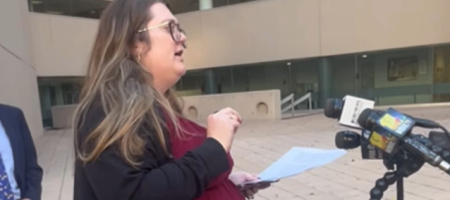What Is Title IX in the College and University Setting?
Our Law Firm Represents Survivors of Sexual Assault on College and University Campuses
Sexual assault and violence on university campuses across the United States is more prevalent than ever. Approximately 33 percent of college undergraduate students suffer from rape or sexual assault at some point while in school. College sexual assault can occur on or off campus, at parties, fraternity/sorority events, in public housing, and in communal spaces. When sexual assault occurs on a college or university campus, survivors have a right to seek justice within the College or University system. To do this, they might consider filing a Title IX sexual assault claim. But what is Title IX and how does it relate to sexual abuse?
What Is Title IX?
Title IX is a federal law originally established in 1972 with the passage of the Education Amendments. It prohibits sex-based discrimination in educational institutions and applies to all public and private schools, colleges, and universities that receive federal funding. Historically, the law protected individuals against sexual discrimination. However, Title IX now extends to sexual violence, sexual assault, and sexual harassment on campus, which includes dating violence, domestic violence, and stalking.
The law itself is only a few pages long, but many guidelines come with it. These guidelines instruct school officials to take complaints of sexual violence seriously. Administrators must investigate all complaints and develop policies to protect students against harassment and sexual violence. Any program or school that receives federal funding must abide by Title IX laws.
What Is a College’s Responsibility Under Title IX?
When a survivor makes an allegation or accusation of sexual assault or violence, the university must respond accordingly. According to Title IX:
- The university must respond promptly to every reported instance of sexual assault, harassment, or violence.
- The university must offer supportive measures to survivors, regardless of whether the survivors chooses to file a formal complaint.
- The university is prohibited from pressuring a survivor into not filing a formal complaint or not participating in a grievance process.
- Survivors are not permitted to be asked about prior sexual history and shall not be required to divulge any medical, psychological, or similarly-protected records.
- The university must protect survivors from having to come face-to-face with their accused during a hearing, and an accused may never be allowed to personally ask questions of a survivor.
- The university cannot retaliate against a survivor for reporting sexual misconduct, choosing to file a formal complaint, or choosing to participate in a grievance process.
Title IX Sexual Assault Claims
Public and private colleges and universities almost always receive federal funding in some capacity, which makes them subject to Title IX regulations. The Department of Education’s Office for Civil Rights (OCR) investigates complaints about possible noncompliance with Title IX.
Unfortunately, even with vigorous oversight, educational institutions do not always handle Title IX sexual assault claims properly. In fact, there have been several high-profile cases in recent years where schools have allegedly mishandled or failed to respond adequately to students’ sexual assault claims.
Recent amendments to the Title IX laws have made it even more difficult for institutions to take action against students who have committed sexual assault. Moreover, the campus Title IX adjudication process often leads to survivors of sexual violence facing more scrutiny than their alleged attackers during Title IX hearings. As a result, survivors of sexual assault are often unheard and traumatized a second time—first by their assaulter and then by the school administration.
Contact Our Law Firm Today to Discuss Your Potential Case
If you suffered a sexual assault or sexual harassment on campus and you feel you have not been heard by your college or university, contact us today. It is important for you to realize that you are not alone.
You can schedule a free confidential consultation with a lawyer at our law firm to determine whether you can file a lawsuit. Grant & Eisenhofer P.A. attorneys are investigating Title IX college campus sexual assault claims across the country.

Sexual Abuse Survivor Attorneys in Archdiocese of Baltimore Bankruptcy Case are Optimistic Following January 5th Hearing

Survivors Testify, Demanding Justice and Fair Compensation in Baltimore Archdiocese Bankruptcy Case

